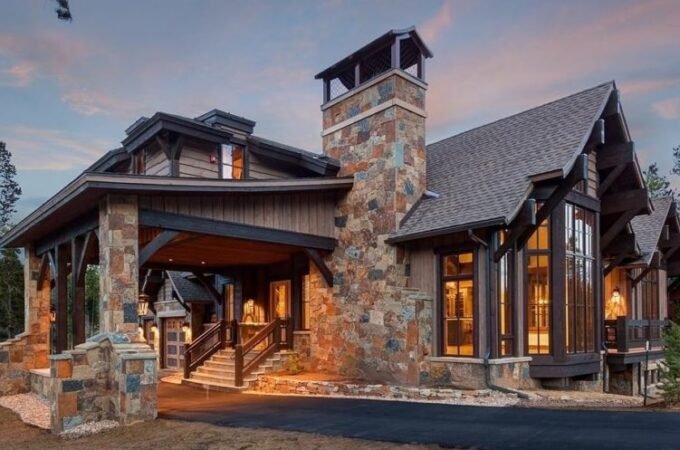
5 Things to Consider When Downsizing to a New But Smaller Home
Downsizing to a smaller home is becoming a popular choice for many people, especially seniors and those whose children have moved out. It’s not just about moving to a smaller space—it’s about simplifying your life and reducing expenses.
One of the ways to do just that is by purchasing a manufactured home from a high-quality seller. With single-level living options and accessible floor plans, today’s manufactured homes are cozy with manageable living spaces that fit your new lifestyle. If you’re considering downsizing, one of these smaller and highly affordable homes may be the perfect solution.
But before you do, are you ready to downsize? Let’s discuss this further.
Table of Contents
ToggleWhy Downsize?
In years past, many seniors chose to live in their homes until their final days or until a point where they could no longer care for themselves in the comfort of that home. But these situations are becoming less and less common, especially as big houses were a trend for so long. And while these large homes might have been great for raising a family, they aren’t exactly conducive to the more minimalist lifestyle that we tend to embrace as we age.
There are many reasons why downsizing makes sense. For many, it’s about making life simpler and more affordable. As we implied earlier, the appeal of maintaining a large home can diminish as we age or move into new phases of our lives.
Downsizing can reduce stress and increase your quality of life, offering several benefits:
- Financial Benefits: Moving to a smaller home can significantly cut costs. Smaller homes often mean lower utility bills, less money spent on upkeep, and lower property taxes. This financial relief can free up your budget for other priorities like travel, healthcare, etc.
- Lifestyle Changes: A smaller home means less space to clean and maintain, which translates to more free time. It’s not just about having fewer rooms; it’s about having the right space that suits your current needs without the extra burden.
- New Opportunities: With fewer chores and lower expenses, you might have more time and money for the things you love. Travel, hobbies, and personal growth suddenly become more accessible when not tied down by a demanding property.
Things to Consider When Downsizing
Downsizing is starting to sound appealing, right? About 51% of couples decide downsizing is the way to go when the time is right. This can be as soon as the kids are off to college, after they have moved off for good—let’s face it, with rent prices so high, the kids come back for longer than we might expect—or when your health situation makes it more challenging to get around or care for your existing home.
So, if you are starting to consider this, here are a handful of things to consider.
Identifying Essential Needs
When downsizing, be sure to focus on what you really need. Think about your daily activities and what spaces you use most. This might mean prioritizing a comfortable living room over a spare bedroom or choosing a home with a large kitchen if you love to cook. It’s about maximizing the functionality of smaller spaces and letting go of the areas that no longer serve your lifestyle.
Future Lifestyle Considerations
Consider how your needs might change in the coming years. If mobility might become an issue, look for a home with fewer stairs or accessible features like wider doorways. Also, consider the location—proximity to healthcare facilities, family, and social hubs can make a big difference in your daily life and social interactions. And if grandkids are in the cards or your kids live a distance away, a second or third bedroom might be a good idea.
Decluttering
Downsizing is an opportunity to declutter and simplify your belongings. We highly advise against starting the process only a few days before you move into your new manufactured home.
Start by categorizing your items into what to keep, sell, donate, or throw away. The KonMari Method works well for those looking to move into a smaller home. Focus on keeping things that are essential or hold significant sentimental value.
And remember, some of your existing furnishings might not fit in your new space. Selling or donating items can be liberating and help streamline your move to a smaller space. Plus, you can easily furnish your new home on a budget.
Choosing the Right Location
The location of your new home is just as important as the home itself. Look for safe neighborhoods with good community support. Consider the convenience of nearby amenities like grocery stores, public transportation, and parks. Be on the lookout for existing manufactured home communities that embrace your lifestyle.
Financial Planning
Financially, downsizing should make sense. Create a budget that includes potential selling profits from your current home and the cost of the new home. Consider additional expenses such as renovations, moving costs, and new furniture. Proper budgeting will help ensure that downsizing improves your financial situation, giving you more freedom and less financial stress.
Reflect and Decide On Your Next Steps
Before moving into a smaller home, consider these important questions: Are you emotionally ready to leave your current home? Will downsizing enhance your quality of life? Consider how it will affect your daily routines and social connections.
Consider your physical needs for the upcoming years and assess whether your finances are robust enough to manage unexpected costs. Answering these questions can ensure that your move to a more manageable living space, like those offered by ECM Homes in Washington state, is a step toward a fulfilling future.
Mark Ligon is the Marketing Manager at a leading e-commerce store in plumbing supply. Mark focus is on DIY projects and providing creative and practical advice to individuals looking to complete DIY projects of their own






